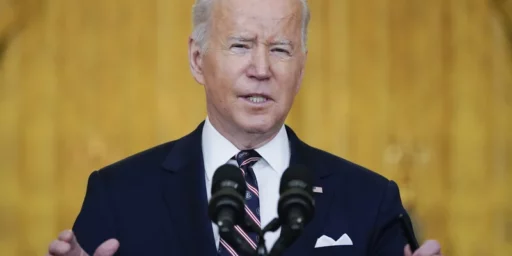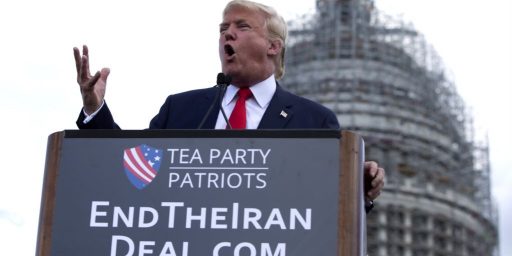Iraq’s Banking System Begins to Modernize
According to the Christian Science Monitor, bank modernization serves as both an economic and a security tool:
Iraqis Eye Credit to Boost Economy
Shoppers in Baghdad no longer need to carry plastic bags full of cash, as they did after years of international sanctions reduced the value of a 10,000-dinar note with Saddam Hussein’s likeness to less than $5.
A year-and-a-half ago, the Central Bank of Iraq (CBI) began issuing higher-value currency notes. And it is now trying to help stimulate business around the country by reintroducing coins.
But finance officials eager to move Iraq away from a heavily cash-based society have set their sights on a more ambitious goal: developing banking networks that will allow a shift to an electronic, largely credit-based economy.
Doing away with cash as the main form of payment would reduce the threat of highway robbery, which hinders fund transfers within the country, some bankers say. And in turn, a reliable network for electronic transactions would undercut an insurgency eager to deal in cash and spur reconstruction, finance officials say.
“Your money can’t really be stolen when you carry it as a credit card,” says CBI governor Sinan al-Shabibi.
The Economist Intelligence Unit confirms:
Changes are coming fast and furious in the Iraqi banking sector, where investor confidence appears high despite the lack of any end in sight to the rebellion and lawlessness that has prevailed in much of the country for the past two years.
Undersized local private sector banks, formed starting in the early 1990s as international sanctions tightened around Iraq, have become the focus of intense capital-boosting activity in recent weeks, both on the local stock market and through cross-border investment alliances. The formation of a transitional government after three months of post-election haggling cleared the way for signatures on deals that were in the works for months.
[…]
Switching to a credit-based economy would put an end to highway robberies, Mr Shabibi said, adding that “the excuse of the security situation†should not be allowed to delay reconstruction. “The mere presence of banks and foreign investment in general will improve the security situation,†he said.[…]
Wisely, Shabibi has notified foreign investors that they must commit to the market before gaining access to it. Though such a policy may slow the entry of investment in the short-term, it has beneficial long-term effects, as it encourages outsiders to weigh their options carefully, prevents Iraqis from being taken advantage of, and enables attendant security planning.






Iraqi dinars in the long term will rise as the economy improves read the facts on http://www.dinartrade.com for up to date info in iraqi dinar currency.